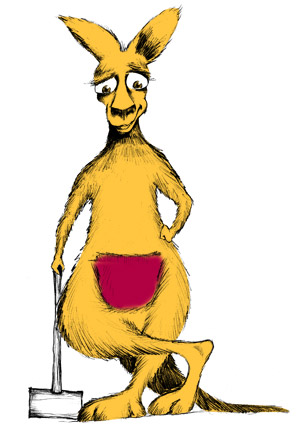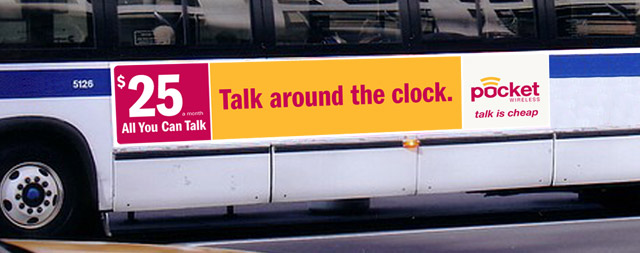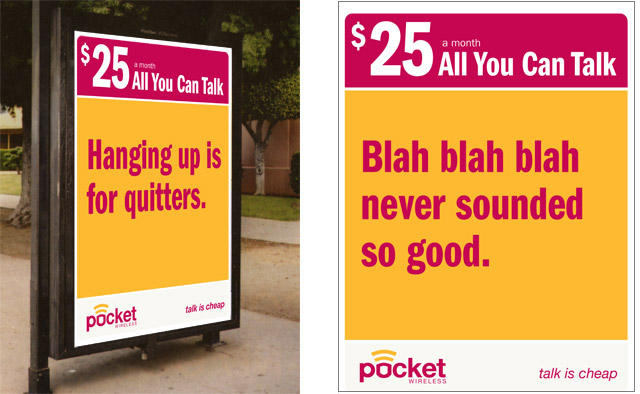Giving A Voice To The People, For Pennies

Pocket was entering the market at the same time as Cricket Wireless, with essentially the same model--unlimited usage for a low price, no contracts, and no credit checks.
Our target was primarily urban and low income. And in that kind of market everyone is screaming about a cheaper, better deal. Free incoming. Free nights. 1000 minutes. 5000 minutes.

We wanted to hammer home the idea that the amount of time someone talked on the phone didn’t matter with Pocket. Cricket Wireless had “unlimited” as their tag, and we needed to say the same thing without saying the same thing. So how exactly do you say what's already being said?
We landed on the line and positioning that “Talk is cheap.” Perfect. It said Pocket was selling talk for cheap and poked fun at all the cheap talk and empty promises of other companies. After talking with consumers, we found that all the noise in the marketplace was triggering their BS meters. Every week there seemed to be a new offer, an apparently better deal. So this week’s talk of a bargain would inevitably become next week’s old news. Add to that the fear of signing at the wrong time and missing out, and you've got yourself some unhappy and undecided customers.
Pocket tossed that all out the window, charging one flat rate for everything. And we gave new meaning to the phrase “Talk is cheap.” It was no longer about screaming match of empty promises but rather about fulfilling a need for fair, reasonably priced access to the wireless airways.


Pocket's successful launch has grown the company from markets in San Antonio to Southwest Texas and the Atlantic Northeast. How's that for talk?